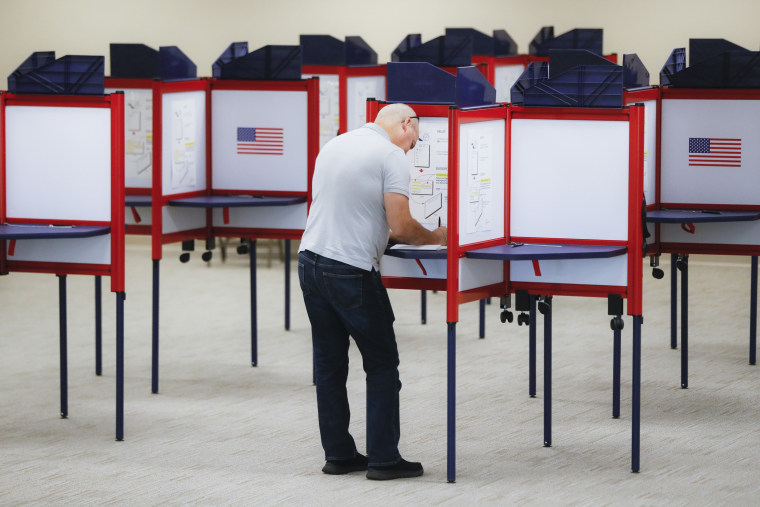WASHINGTON — U.S. intelligence agencies expect Russia to ramp up its efforts to meddle in the U.S. political system through hacking and social media manipulation, according to a worldwide threat assessment released Tuesday morning.
"Foreign elections are critical inflection points that offer opportunities for Russia to advance its interests both overtly and covertly," says the assessment. "The 2018 U.S. midterm elections are a potential target for Russian influence operations."
The nation's intelligence chiefs presented their view of the top threats confronting the nation before the Senate intelligence committee, where faced tough questioning about whether the Trump administration is responding adequately to the Russian efforts.
U.S. intelligence analysts believe that Russia will conduct "bolder and more disruptive cyber operations during the next year," targeting Ukraine, NATO and the United States, the assessment says.
"We assess that the Russian intelligence services will continue their efforts to disseminate false information via Russian state-controlled media and covert online personas about U.S. activities to encourage anti-U.S. political views," the statement says.
"Moscow seeks to create wedges that reduce trust and confidence in democratic processes, degrade democratization efforts, weaken U.S. partnerships with European allies, undermine Western sanctions, encourage anti-U.S. political views, and counter efforts to bring Ukraine and other former Soviet states into European institutions."
The assessment says that Russian President Vladimir Putin, whom President Donald Trump has repeatedly praised, "is likely to increase his use of repression and intimidation to contend with domestic discontent over corruption, poor social services, and a sluggish economy with structural deficiencies"
It adds that Putin will "continue to manipulate the media, distribute perks to maintain elite support, and elevate younger officials to convey an image of renewal. He is also likely to expand the government's legal basis for repression and to enhance his capacity to intimidate and monitor political threats, perhaps using the threat of 'extremism' or the 2018 World Cup to justify his actions."

"We need to inform the American public that this is real," said Director of National Intelligence Dan Coats. "We are not going to allow some Russian to tell us how to vote, how we ought to run our country. I think there needs to be a national cry for that."
Democrats accused President Trump of failing to come to grips with the problem of Russian meddling.
Sen. Mark Warner of Virginia, the top Democrat on the committee, said that "the president inconceivably continues to deny the threat posed by Russia."
"He didn't increase sanctions on Russia when he had a chance to do so," Warner said of Trump. "He hasn't even tweeted a single concern. This threat demands a whole-of-government response, and that needs to start with leadership at the top."
Sen. Jack Reed of Rhode Island wrung an admission from FBI Director Christopher Wray that President Trump hasn't directed him to stop Russian efforts to interfere in this year's midterm elections.
"We're taking a lot of specific efforts to blunt Russian efforts," Wray said, in response to a question from Reed about whether he'd been directed by Trump to do so.
"As directed by the president?" Reed interjected.
"Not as specifically directed by the president," Wray responded.
Reed posed the same questions to the other intelligence leaders, and none of them was able to say that President Trump had explicitly urged them to deal with Russia's election meddling.
Trump's characterization of the Russia investigation as a "witch hunt" is preventing the U.S. from fully confronting the issue, said Sen. Angus King (I-Maine).
"My problem is, I talk to people in Maine who say the whole thing is a witch hunt and it's a hoax 'because the president told me,'" King said. "We cannot confront this threat, which is a serious one, with a whole of government response when the leader of the government continues to deny that it exists," he continued.